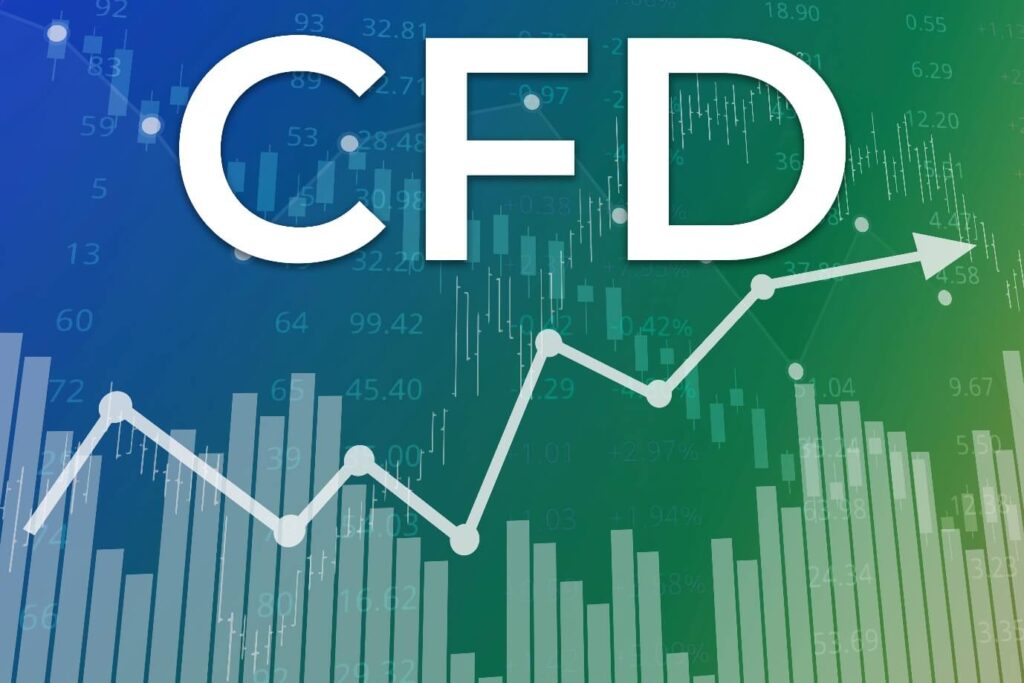Trading stocks using a contract for difference (CFD), in simple terms, allows traders to gain exposure to the price movement of stocks on the global markets without owning the underlying asset with CFDs.
CFD trading allows you to speculate on the prices of assets on the ever-moving stock market, buying and selling an asset whenever it works in your favor, whether the market is rising or falling.
In the past decade, trading CFDs has become increasingly popular, but the question remains – why?
Read on to find out.
Assets Tradable As CFDs

One of the positives of trading CFDs is that you get to speculate on global markets all in one place. There are a variety of assets you can trade as CFDs, including shares, commodities, foreign exchange (forex), indices, and Exchange Traded Funds (ETFs).
4 Benefits Of CFD Trading
Not only does CFDs trading allow you to take long and short positions on the market, allowing you to take advantage as it rises and falls, but there are many other benefits. These include:
1. Leverage
Leverage will make your capital go further, as you only have to deposit some of your trade’s full value to open a position. The deposit you’ll have to put down is called a margin. For example, when stock trading on Plus500, the online trading platform states that:
“With leverage of 1:10, your initial margin requirement for this particular CFD is 10%. This means you only need to deposit $100 to gain a notional exposure of $1,000.”
Whilst this lowers the cost of opening a trade, it can also amplify your losses, so it is important to remember that, like any type of trading, there is also some risk involved.
2. No Stamp Duty
Most UK shares require you to pay stamp duty. You do not have to pay any stamp duty when trading CFDs as you don’t have ownership of the underlying assets.
3. No Ownership
Not owning the assets not only removes the requirement for paying stamp duty but also gives you the flexibility to speculate on market movements so that you can buy and sell quickly and accordingly.
4. Access To Global Markets
Trading CFDs gives you access to global markets without the requirement of purchasing the contract in any other currency. This means that all assets are available to you, in your own currency, around the clock. Be aware. You may have to pay a currency conversion fee.
How To Trade CFDs Stock?
With all this in mind, CFD stock trading allows you to experience these benefits, gaining greater exposure to the underlying asset with less capital.
CFDs are reflective of the underlying stock market. And therefore, the stock market shares and CFDs are traded much in the same way. The price of a CFD is derived from the price that the stock is traded at, so one share is equivalent to one share CFD — also known as a unit. However, the loss or profit is calculated from the differences in price from opening and closing the contract.
Unlike trading stocks traditionally, stock CFDs allow you to quickly access shares from several markets all over the world, opening and closing positions at rates that suit you, as well as it being faster than operating a traditional brokerage account.
CFD trading is also recommended for short-term trading, as you can either open a buy position if you think the price will go up or sell a position if you suspect the price will decrease.
3 Top European Stocks
If you’re looking to start trading stock CFDs, here are some of Europe’s top stocks (at the time of writing) that you may want to look into:
1. Royal Dutch Shell plc (RDSA-L)
As of March 2021, this oil and gas company, located in the Netherlands, had roughly 3.916 billion outstanding stock and CFDs shares, with investors owning 91% of the company. The RDSA-L looks for resources in both conventional fields and in tight rock, shale, and coral formations.
2. ING Groep N.V. (INGA.AS)
In January 2021, INGA.AS had roughly 3.9 billion outstanding shares. The company is a financial institution providing banking services such as savings accounts, business lending, and mortgages.
3. Nestlé (NESN.VX)
As of June 2021, an average of 2.82 billion shares was circulating in this company, with 56% being owned by institutional investors. The company offers products in the nutrition, health, and wellness industries, operating in roughly 190 countries worldwide.
Conclusion:
CFDs trading is not challenging to make. Like the stock market, you also can start trading. But for the long-term investors, this is not going to be profitable for long-term share investments. For the short-term investors, CFDs are better, and you can easily make a huge profit out of small investments and trading.
Read Also:




























